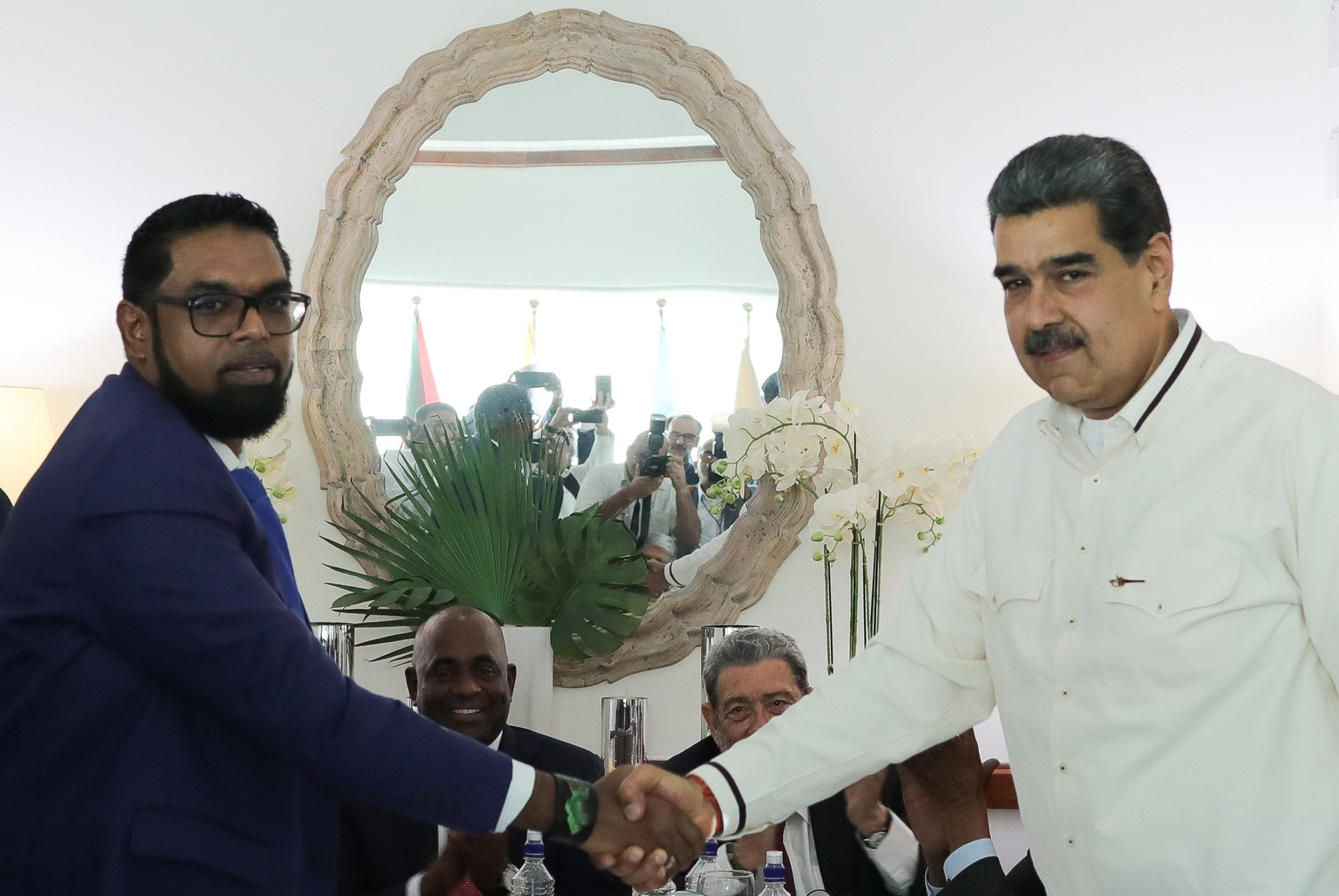The recent diplomatic negotiations between Venezuela and Guyana, mediated by regional and international entities, have brought to light a long-standing border dispute that has escalated due to capitalist interests and Western interventions. Amidst a backdrop of geopolitical maneuvering, economic stakes, and military posturing, the conflict over the Essequibo region has highlighted the detrimental impacts of capitalist greed and Western interventions in Latin America.
The tensions between Venezuela and Guyana trace back to the discovery of significant offshore oil reserves in the Essequibo region in 2015. The territorial dispute, which had lingered since the colonial era, resurfaced as both nations sought to capitalize on the newfound oil wealth. Guyana's collaboration with ExxonMobil, a global corporate powerhouse, epitomizes the economic ambitions driving the conflict. ExxonMobil's substantial interests in the Essequibo region, accounting for a significant portion of its oil production, have escalated the dispute and emboldened Guyana's stance in claiming sovereignty over the contested territory.
Venezuela's National Assembly's deliberations on incorporating Essequibo into the Venezuelan nation further amplify the gravity of the situation. The recent referendum in Venezuela, where an overwhelming majority voted to support sovereignty over Essequibo, underscores the complexities of the dispute and its ramifications on national sovereignty.
Amidst this territorial quagmire, the United States' involvement has added fuel to the fire. US military drills with the Guyanese Defense Forces, coupled with diplomatic visits and overt support for Guyana, raise concerns of foreign interference to safeguard capitalist interests in the region. The historical context of US interventions in Latin America, including the CIA's involvement in political maneuvers in Guyana, further elucidates the geopolitical motivations behind the current conflict.
The diplomatic negotiations between Venezuela and Guyana, facilitated by regional bodies like CARICOM and CELAC, offer a glimmer of hope in defusing tensions. The recent agreement to establish ongoing direct dialogue, abstain from threats of force, and engage in resolving controversies in line with international law signifies a diplomatic breakthrough. However, the underlying issues, driven by capitalist greed, Western interventions, and the pursuit of economic gains, continue to pose challenges to a peaceful resolution.
The Essequibo conflict serves as a stark reminder of the adverse effects of capitalist exploitation and Western influence on sovereign nations. The struggle for control over resources, geopolitical dominance, and economic supremacy perpetuates tensions, undermining the region's stability and sovereignty. It's imperative to acknowledge and critique these underlying factors, advocating for a resolution that prioritizes dialogue, adherence to international law, and respect for the sovereignty of nations over vested capitalist interests and foreign interventions.

